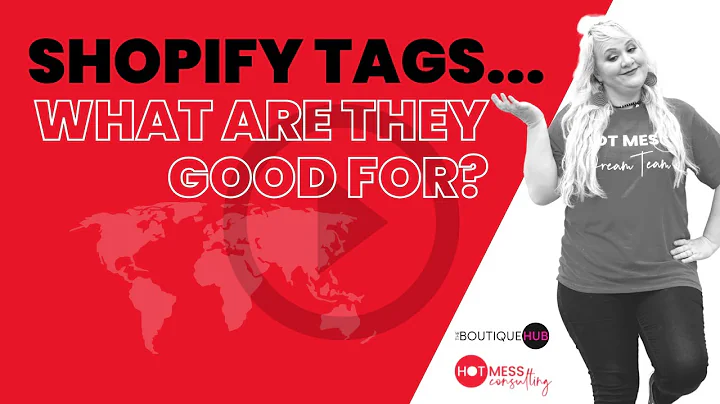Magento vs Shopify: Which eCommerce Platform is Right For You?
Table of Contents
- Introduction
- Comparing Ready-Made Solutions and Customizable Platforms
- Shopify: Benefits and Downsides
- Easy to use, but limited customization
- Dependence on the provider for updates and features
- Limited number of templates
- Magento: Unlimited Customization Capabilities
- Open source nature
- Highly customizable eCommerce websites
- Vast functionality for multi-store support
- Scalability and Expansion
- Limitations of Shopify for expanding to new countries and storefronts
- Magento's ability to handle multiple stores under a single installation
- Hosting and Server Control
- Shopify's hosting included in plans
- Magento's freedom to choose hosting provider
- Innovations and Feature Adoption
- Dependence on Shopify for adopting new features
- Customizable features and PWA adoption with Magento
- Support and Problem Resolution
- Shopify's support services and specialist involvement
- Magento community, user guides, and developer assistance
- Conclusion
- Subscribe and Stay Updated
Shopify vs Magento: Choosing the Right eCommerce Platform
When it comes to starting an eCommerce website, one of the first decisions you need to make is choosing the right platform. The question arises: Should you opt for a ready-made solution or a platform that offers unlimited customization capabilities?
Shopify and Magento are two popular platforms that provide different approaches to building and managing an online store. In this article, we will compare the benefits and downsides of each platform, considering factors such as customization, scalability, hosting, innovation adoption, and support.
Shopify: Benefits and Downsides
Shopify is known for its ease of use and quick setup process. With Shopify, you can launch a new eCommerce website without the need for extensive customizations or coding. It provides a range of templates and features that are ready to use out of the box. However, this convenience comes with its limitations.
On one hand, Shopify's simplicity makes it attractive for beginners or those who want a hassle-free experience. On the other hand, it restricts the level of customization you can achieve. As a SaaS platform, you rely on Shopify to release new features and integrations. Additionally, the number of templates available for customization is limited. While Shopify is user-friendly, it may not meet all the unique requirements of highly customized websites.
Magento: Unlimited Customization Capabilities
Magento, on the other hand, is an open-source platform that offers unlimited customization capabilities. It provides the freedom to change the source code as per your requirements. With Magento, you can create highly customized eCommerce websites with any design, features, and integrations. This flexibility makes Magento a winner in terms of customization.
When it comes to scalability and expansion, Shopify has some limitations. It does not allow you to create multiple stores under a single installation, which can be problematic for businesses wanting to expand to new countries or have separate storefronts in different languages. Each store requires a separate license, and managing multiple stores can pose challenges in terms of syncing information and inventory.
Magento, on the other hand, excels in this aspect. It allows you to add an unlimited number of stores under a single installation. This means you have a single product catalog and admin panel to manage all your stores. Magento offers extensive functionality for multi-store support, including different price rules, domain names, categories, and currencies. This scalability feature makes Magento a preferred choice for businesses with complex requirements.
Hosting plays a crucial role in the performance of an eCommerce website. Shopify provides its own hosting for each plan, which means you have less control over the server and depend on Shopify for maintenance. In contrast, Magento does not provide hosting by default, allowing you the freedom to choose the best hosting provider that suits your specific business needs. This flexibility in hosting options can have a significant impact on your website's speed and performance.
In terms of innovation and feature adoption, Shopify relies on its own development team to introduce new features to the platform. While there are ready-to-use plugins available in the Shopify app store, customization capabilities are limited. If you want to create something unique, you may have to wait for Shopify to add the desired functionality, if they choose to adopt it at all.
Magento, being an open-source platform, does not have such limitations. You have the ability to develop any needed features or adopt the latest innovations. For instance, Magento offers PWA (Progressive Web App) Studio, a set of tools for progressive web development. You can also choose from a wide range of PWA storefronts and configure them as per your preferences. With Magento, you have the freedom to keep up with the latest trends and implement custom features without waiting for official updates.
When it comes to support and problem resolution, Shopify offers various support channels to assist users. However, addressing complex issues may require involvement from Shopify specialists, prolonging the resolution process. On the other hand, Magento provides extensive user guides and a vibrant community of developers. The Magento Community offers a platform for users to ask questions and seek answers from experienced users. This community support can prove invaluable in resolving issues quickly and efficiently.
In conclusion, choosing the right eCommerce platform depends on your specific requirements and long-term goals. Shopify offers simplicity and ease of use but has limitations in customization and scalability. Magento provides unlimited customization capabilities and scalability options, along with the freedom to choose hosting and adopt new features independently. Consider factors like customization needs, scalability, hosting control, innovation adoption, and support when making your decision.
Subscribe to our channel for more insights and updates on eCommerce platforms. Stay informed and make the best choice for your online store.


















